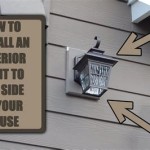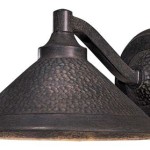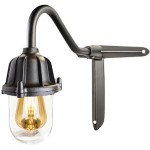Types Of Outdoor Plants For Home
Having a beautiful, thriving garden is a dream for many homeowners. But with so many different types of outdoor plants to choose from, it can be overwhelming to know where to start. This article will discuss the essential aspects of choosing the right outdoor plants for your home, covering everything from sunlight requirements to soil type and maintenance needs.
Sunlight Requirements
One of the most important factors to consider when choosing outdoor plants is how much sunlight they need. Some plants, like sunflowers and roses, thrive in full sun, while others, like hostas and ferns, prefer partial shade or even full shade. It's important to match the plant's sunlight requirements to the conditions in your yard or garden. If you're not sure how much sunlight an area gets, you can use a sunlight meter or simply observe the area over the course of a day.
Soil Type
Another important factor to consider is the type of soil in your yard or garden. Different plants have different soil preferences, so it's important to choose plants that are well-suited to your soil type. For example, plants like rhododendrons and azaleas prefer acidic soil, while plants like lavender and rosemary prefer alkaline soil. If you're not sure what type of soil you have, you can get a soil test done.
Maintenance Needs
Some plants require more maintenance than others. For example, plants like roses and hydrangeas need to be pruned regularly to keep them healthy and blooming. Other plants, like perennials and groundcovers, are relatively low-maintenance and require little care beyond watering and occasional fertilizing. When choosing outdoor plants, it's important to consider how much time you're willing to spend on maintenance.
Other Factors to Consider
In addition to sunlight requirements, soil type, and maintenance needs, there are a few other factors to consider when choosing outdoor plants. These factors include:
- Hardiness zone: The hardiness zone refers to the coldest temperature that a plant can tolerate. It's important to choose plants that are hardy to your climate zone.
- Size and shape: The size and shape of a plant can affect its placement in your yard or garden. For example, a tall, narrow plant can be used to create a focal point, while a low, spreading plant can be used to create a groundcover.
- Color: The color of a plant's flowers, foliage, or fruit can be used to create a specific look in your yard or garden. For example, you can use bright, colorful plants to create a cheerful atmosphere, or you can use subtle, muted colors to create a calming effect.
Choosing the Right Plants for Your Home
When choosing outdoor plants for your home, it's important to consider all of the factors discussed above. By taking the time to choose the right plants, you can create a beautiful, thriving garden that you'll enjoy for years to come.
Here are a few additional tips for choosing outdoor plants for your home:
- Visit a local nursery or garden center and talk to the staff about which plants are best suited to your climate and needs.
- Read books and articles about gardening to learn more about different types of plants and their care requirements.
- Experiment with different plants to see what grows best in your yard or garden.
With a little planning and effort, you can create a beautiful, thriving garden that you'll enjoy for years to come.

10 House Plants That Will Clean And Purify The Air Inside Your Home Tropical

Front Yard Landscaping Ideas To Your Home Decorative Plants For Instant Curb Appeal

62 Best Types Of Flowers With Pictures For Your Garden

5 Types Of Plants To Choose For Your Small Garden Groomed Home

17 Best Outdoor Foliage Plants To Grow Garden Design

17 Best Outdoor Foliage Plants To Grow Garden Design

The Best Low Maintenance Plants For Landscaping
:max_bytes(150000):strip_icc()/bottlebrush_light_show_red_x21a3470_600x900-f51ecfaa71974f7f96e5879669cfdb44.jpg?strip=all)
14 Front Yard Plants That Won T Take Over Your House

24 Best Low Maintenance Flowers And Plants Outdoors

Outdoor Plants In Pictures With Names For Entrance Balcony Low Maintenance
Related Posts







